One Intentional Move

Somewhere a university student is working hard at his computer, hoping to be considered for a teaching position that will allow him to guide students to be all that they can be.
Somewhere a teacher is staring blindly at the screen, thinking about beginning her journey to become an administrator and lead a school one day soon.
Somewhere countless people are facing an impending retirement, uncertain and searching countless blogs about how to make a contribution with the next phase of their lives.
This is today.
But what about tomorrow morning?
Will these people sit in the same chair, looking at the same screen, with the same positive aspirations?
Any of us can find ourselves in a rut and a forlorn déjà vu where we repeat the same habits and routines, hoping for a different outcome.
The harsh truth is that nothing will change until we change. We have to make a move.
One intentional move.
In John Maxwell's, The 21 Irrefutable Laws of Leadership, the very first law is The Law of ...
Smooth Stones

It sure would be wonderful if we could avoid the bumps, bruises, and pain that comes with growing, right?
Or would it?
In good times, we don't move until we're uncomfortable, much like we might wait until we're actually shivering before we put on a sweater. Often, some of our best results come from discomfort or even pain.
Every problem introduces a person to himself. (John McDonnell)
Imagine a rapidly flowing river replete with jagged rocks on the edge and smooth stones under the surface.
The stones are worn down by bumping up against one another and the water that rushes over them. Their beauty is amplified by sharp contrast to the roughly edged rocks sitting on the periphery, relatively unscathed.
The smooth stones weren't always smooth; it took many tumultuous years in the most powerful currents for them to be so polished.
Shortcuts?

Sure, you can buy a rock tumbler, but the result is just a bunch of smooth stones, without the beauty of the river and the latent potential ...
Leaders Love
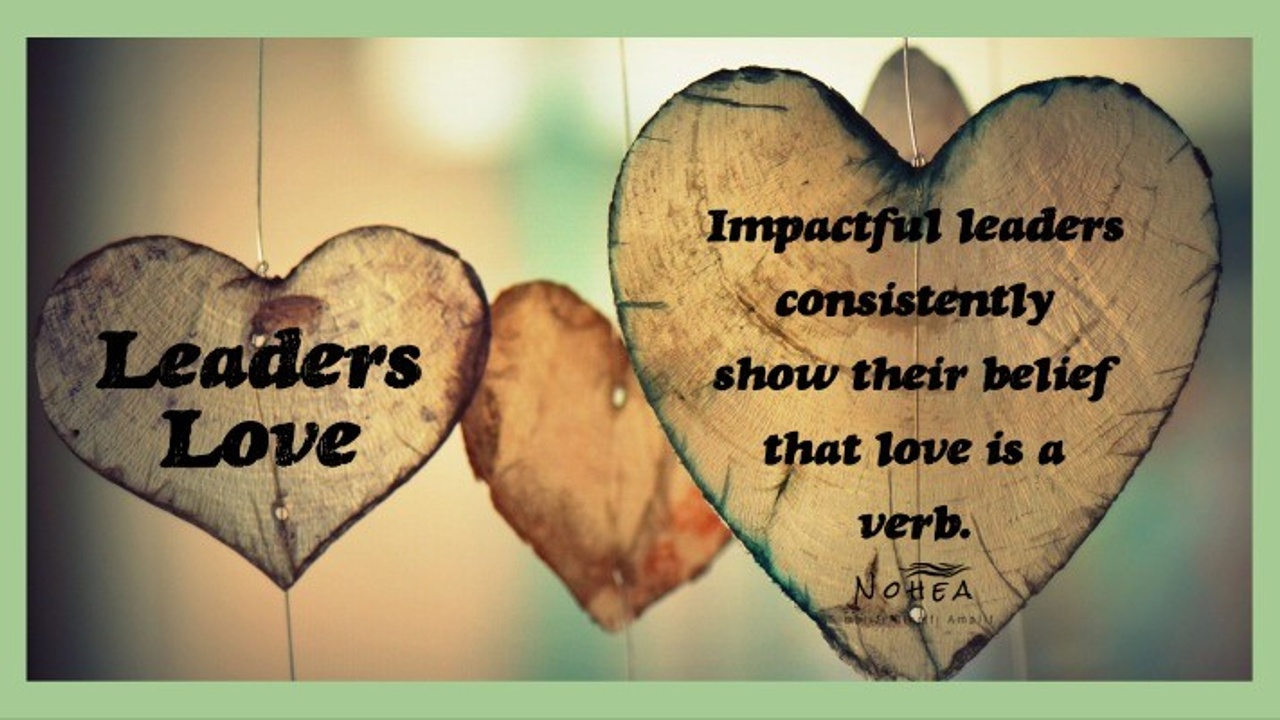
Is it a bit of an exaggeration to say leaders need to love their people?
Not like.
Love.
We don't have to like someone every day or even most days, but isn't love a leadership requirement?
We should always strive to build a community that encourages cooperation, emotional support, and personal learning as we work together to achieve what we cannot accomplish alone.
The connectedness of people is always on display in an exceptional school. No leader ever builds lasting success in isolation. One of the most underutilized and most effective strategies for improving results is building a community that connects people's deepest hopes and dreams to the work at hand.
Schools need leaders who address matters of the heart, leaders who engage in an ongoing process of reminding people that their work is important, they are being successful, and their continued success will depend in large part on their willingness to work together to share their knowledge, skills, and insights. (Rick Dufou...
Shouldn't a Strength Make You Stronger?
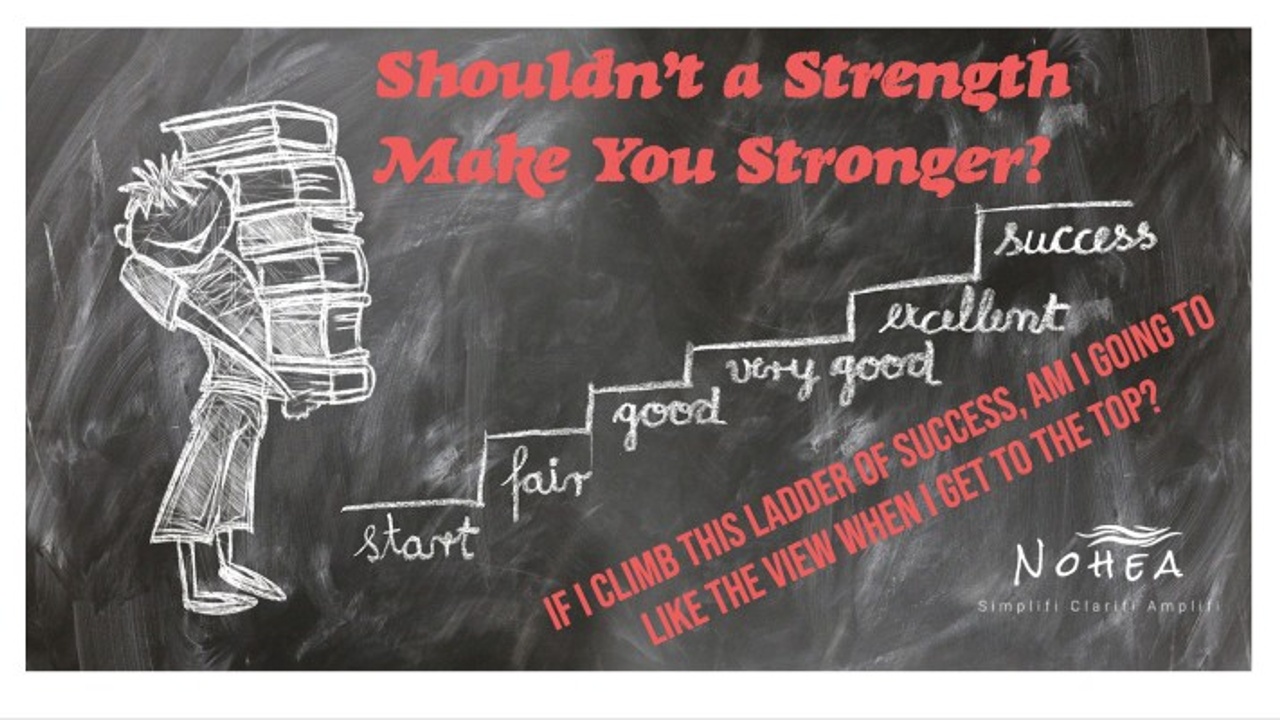
Is there something that you do well that you really can't stand doing?
I was a principal and superintendent for sixteen years, and I think most people felt I did a good job, helped build people up, and cared a great deal about them. I always carried good weather into any meeting, including the most negative situations, and everyone knew I was calm and strong in a disagreement.
I heard from a lot that people who were happy I had their backs in an argument. At times, compliments delivered with kindness can make us cringe.
I'm happy to have left that part of me behind.
I don't consider being good in conflict a strength. I see it as embittering expertise.
“When people’s talent does not match their dreams and they fail to recognize it, they will be forever working but never winning.” (John Maxwell)
Is being good at something synonymous with strength?
Certainly, there are times we have to do some things that we don't want to do. Such talents might be a strength for the organization, b...
I Have To. I Get To
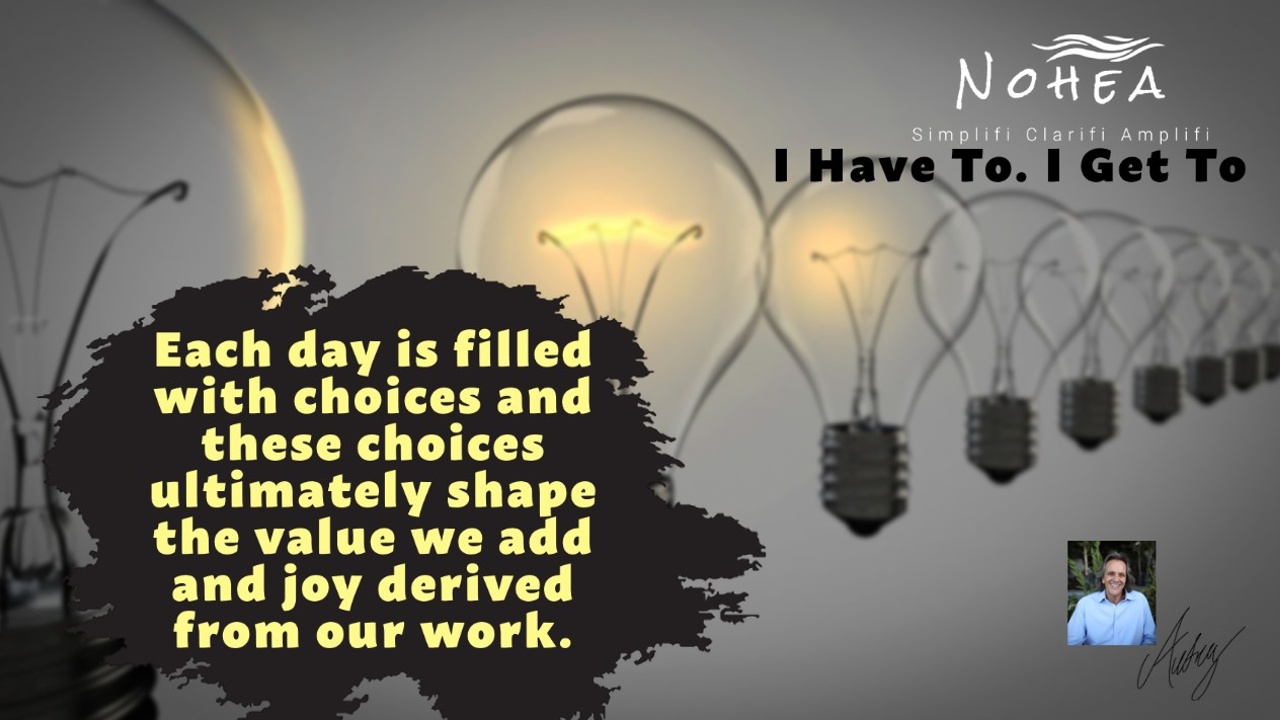
Quickly changing the angle of our phones and webcams has become a rather instinctive motion.
So why is it that we are so quick to show the world a better version of ourselves, but don't adjust our lens to offer the world around us the same opportunity?
"We see the world, not as it is, but as we are - or, as we are conditioned to see it." (Stephen R. Covey)
How much better would we be as leaders if we re-oriented our gaze to see obligations as opportunities? How much brighter would each day be? Not only brighter for us but for all those in our wakes?
I have to work out early today.
I get to go to work out early today.

Each day is filled with choices and these choices ultimately shape the value we add and joy derived from our work.
"We can choose how we view our life and work. We can realize that every day is a gift. It’s not about what we have to do. It's about what we get to do." (Jon Gordon)
Whenever we are tempted to say we have to do something, we should instinctively adjust the ...
50% Adulting
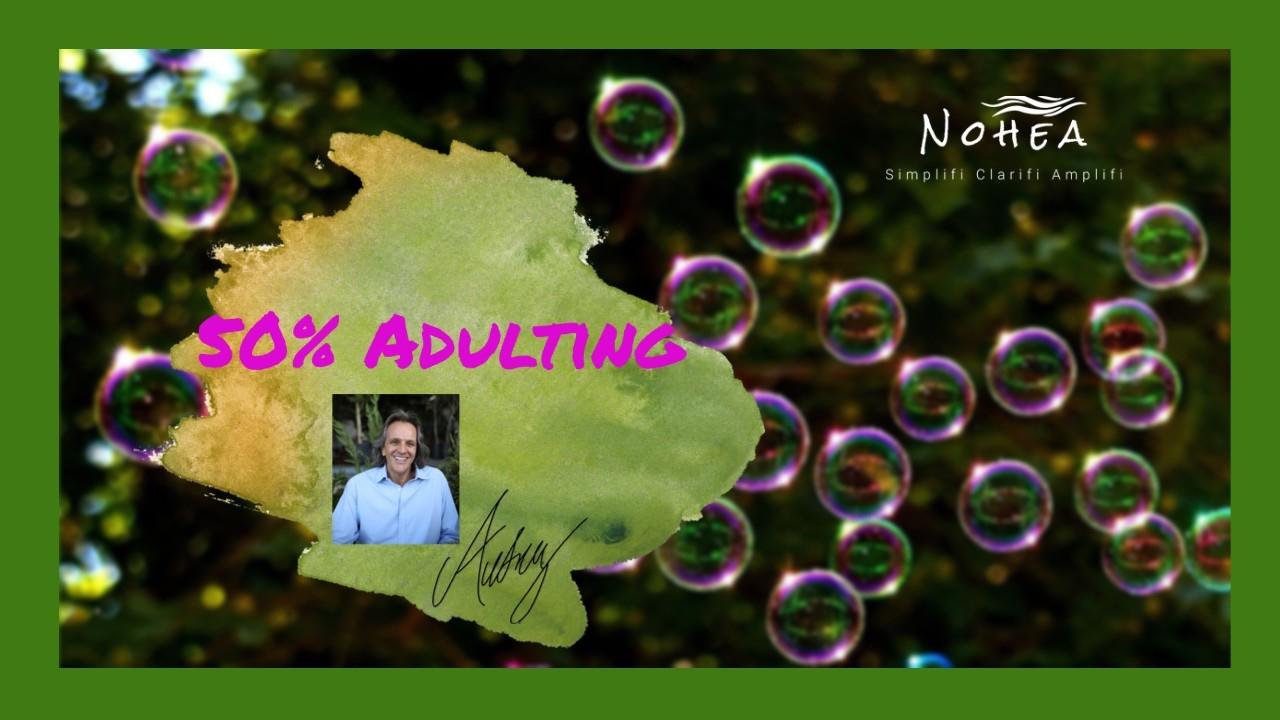
Imagine a toddler chasing bubbles. It's so easy to smile with every happy reach, right?
Wouldn't it be fantastic if we could embrace our childlike wonder and tirelessly chase the bubbles that pop up in our adult lives?
Well, yes ...
And, no.

Of course, not every bubble should be chased. Effective leaders understand that not everything is a binary choice, and seeking to be 50% childlike is often the right choice. They lead knowing a childlike tendency to play, laugh without worry, and live in the present is good for the soul and the healthy kind of infectious.
Yet, exceptional leaders are thoughtfully open to the bubbles that appear each day. They exercise restraint and rather than reach for every bubble, they enjoy watching others go before them and examining the source in hopes of becoming a bubble maker.
Mindful leaders embrace their childlike wonder, chasing the bubbles meant for them while discerning how best they grow that same excitement in those they serve.

Want...
The Pre-Vacation Productivity Zone
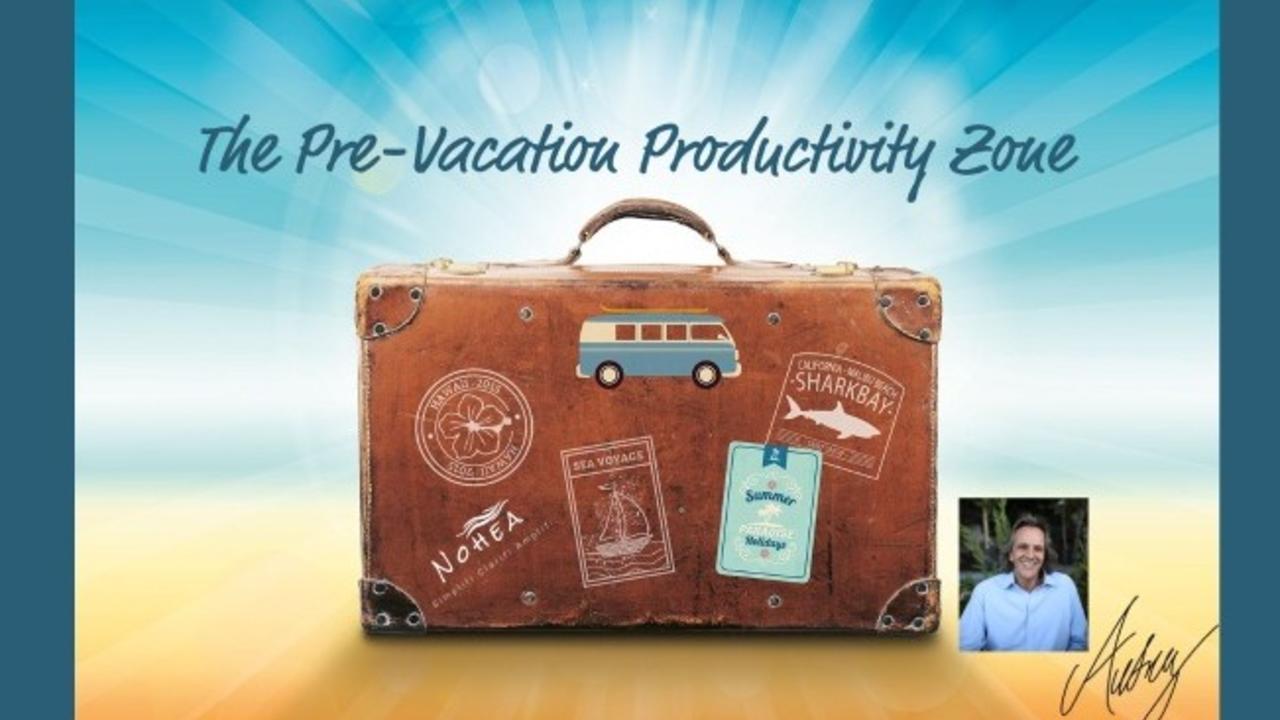
You're going on vacation.
Suddenly, you're crushing your things-to-do lists, sending quick and clear emails, and crumpling post-its like a pro!
Most of us get in a zone in the days leading up to a self-imposed finish line.
Why?
Certainly, we may be buoyed by increased optimism and energy, but it's not the actual vacation that drives productivity. Rather, we're driven to close as many open loops as possible to better enjoy the time on vacation and satisfy other desires like returning to a fresh start.

The pre-vacation productivity zone may feel a little frantic, but thoughts of that finish line and the impending sense of accomplishment provide an extra gear.
I'll feel good about this trip, once I'm in the car.
I will take a breath when I get through security.
Wouldn't it be wonderful to operate with these finally in the car or through security feelings every day?
Without the hurried pace?
There is a way.
Time-blocking is a lead domino, along with a 15-minute Friday meeting ...
The Best Research is Me-Search
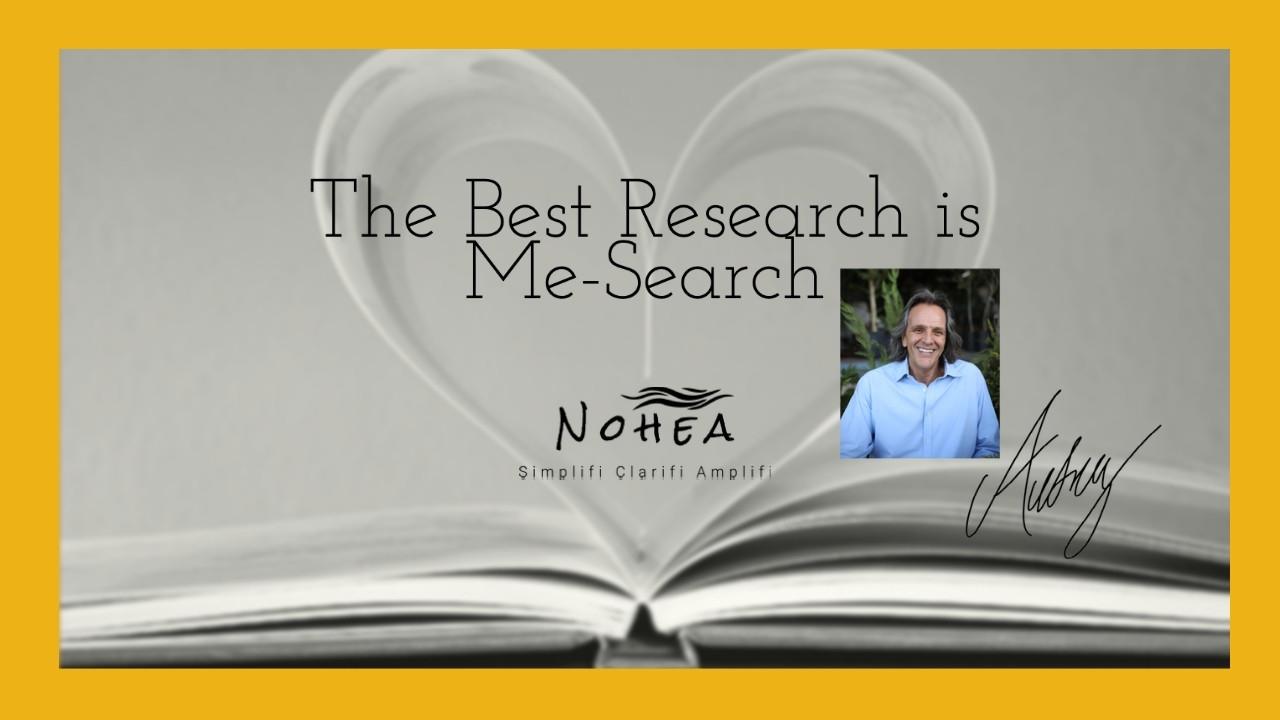
I know in my heart there's got to be a better way!
Do you too often land on this thought while lying awake in bed at 2 am, after a day of long and unproductive meetings, or staring at a seemingly pulsating inbox with far too many reminders of things to do?
This is the kind of cardiac assessment we all do without a doctor and, much like internal medical scopes, this self-assessment can be painful yet lead to brighter days.
Much of our most impactful creativity begins with a breaking point, digging into a problem that’s eating at us, and finding a solution.

We don’t really do our best work when we know the answers, but instead when we need the answers.
These same axioms apply to the problems we encounter in our organizations.
Most great answers, pathways, and systems begin with a healthy dose of cognitive dissonance and an even healthier supply of humility. "Leaders are not discovered in the limelight; (they) gain respect on difficult terrain, after taking a few blows and being s...
Are You a Carrot, an Egg, or a Coffee Bean?
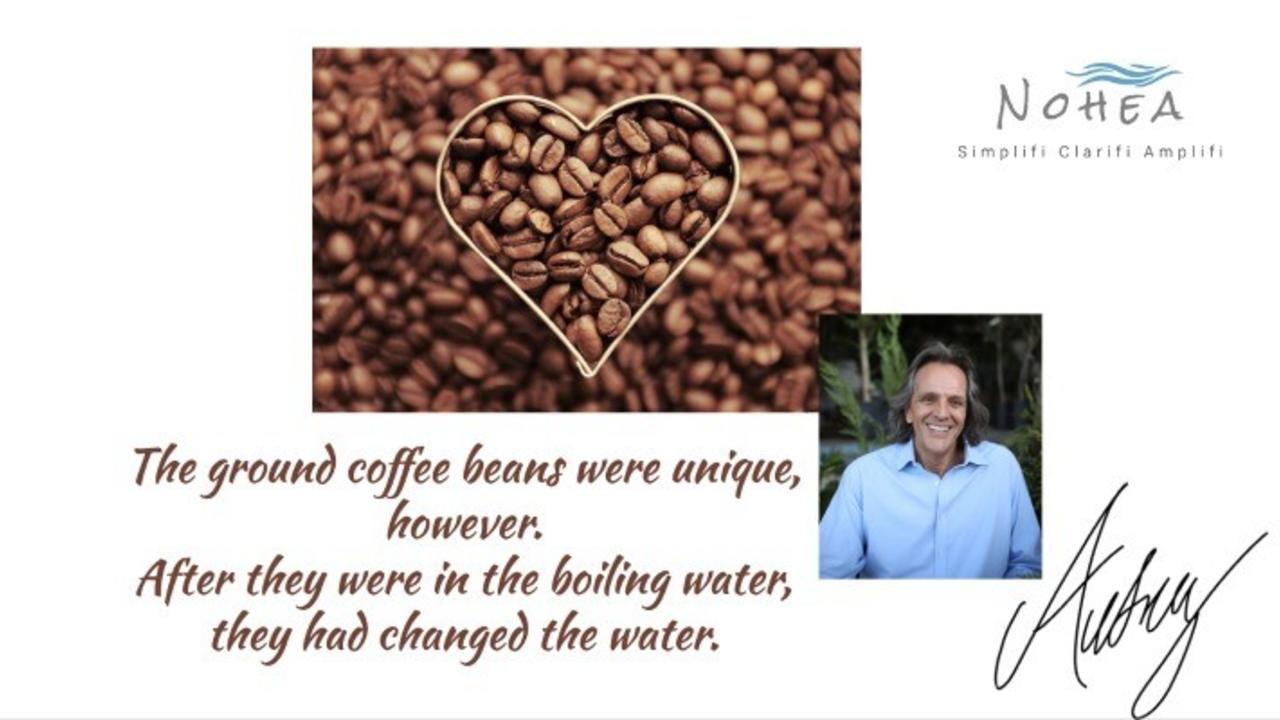
Isn't it amazing that we can go years without hearing someone's name and then that person shows up two or three times in a few days?
This same phenomenon can also happen with an impactful quote or story.
This parable that first landed upon me almost two decades ago, has shown up three times in the past month. The original author is unknown, and perhaps this is how it should be ... the first to tell an impactful story is certainly a coffee bean.
A young woman went to her grandmother and told her about how things were so very hard for her. She did not know how she was going to make it and was ready to give up. She was tired of struggling. It seemed that whenever one problem was solved, a new one surfaced to take its place.
Her grandmother took her to the kitchen, where she filled three pots with water and placed each on a hot stove. The pots quickly came to boil. In the first she dropped carrots, in the second she placed eggs and in the third, she put ground coffee beans.
After abou...
The Fence Needs To Go
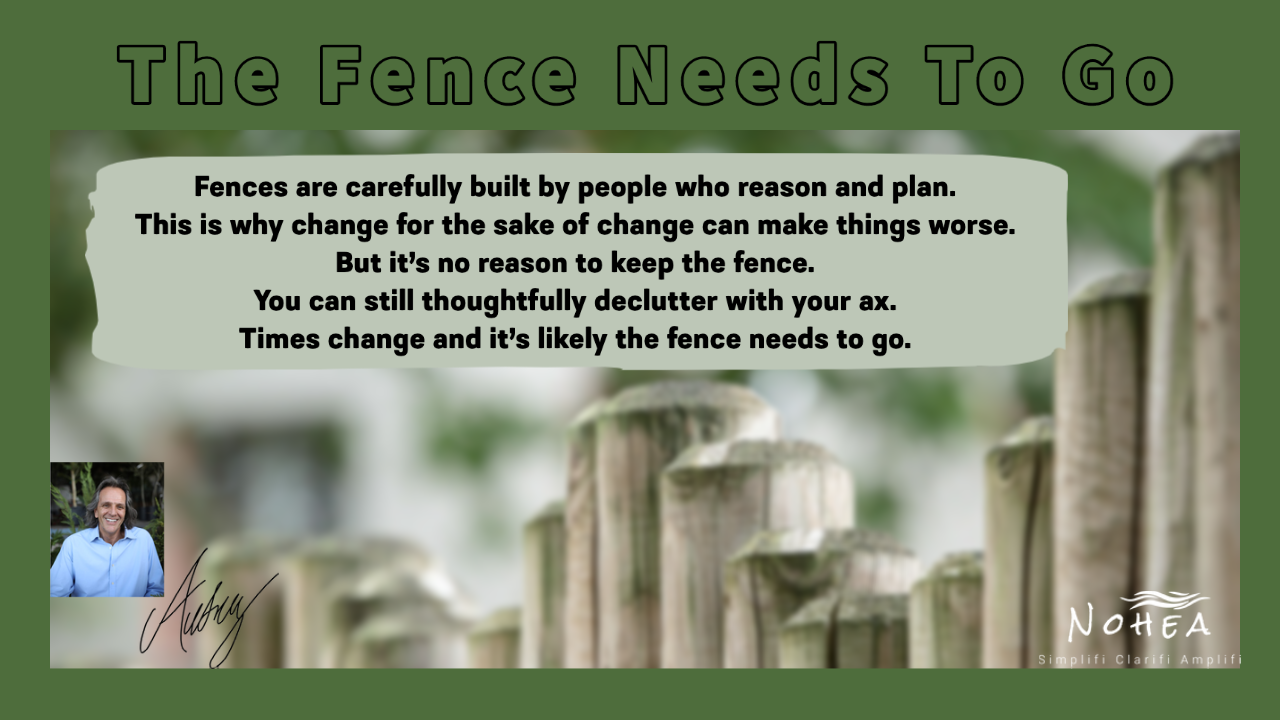
Do you know any well-intentioned leaders who come in with new initiatives without first removing tired practices from your current reality? Perhaps you've had change happen to you and it feels like change for the sake of change?
Decluttering and change are necessary and there shouldn't be tension between the two. Decluttering is always the ideal lead domino. An effective leader invites change with, "what can we do right now to make anything on our things-to-do lists easier or unnecessary?"
Of course, sometimes, potentially impactful new ideas reveal themselves. While new shiny toys are always captivating, we need to first ask how this might make any other practice or policy easier or unnecessary, and this habit quite naturally leads back to a little decluttering.
However, some have an itchy trigger finger and quickly declutter just because things feel messy. Discomfort isn't reason enough to hand out erasers and red pens.
Effective leaders understand it's impossible to thoughtfully...

